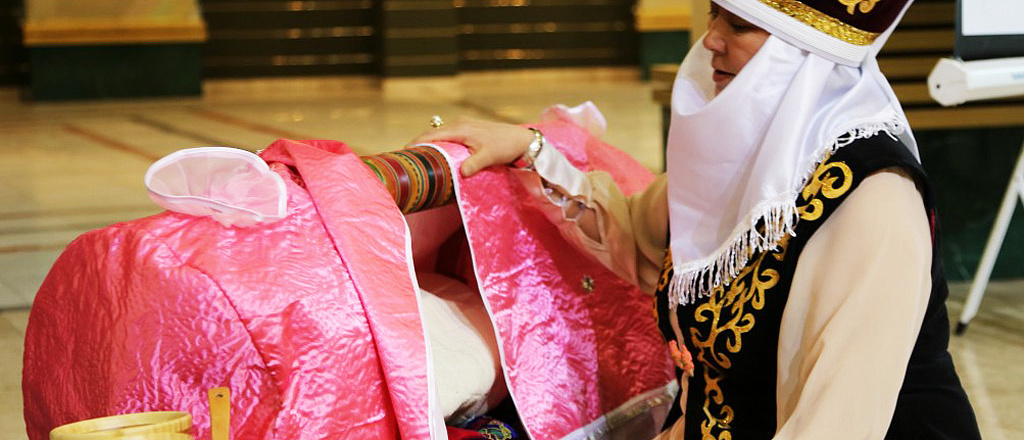The birth of a child has always been a significant event. Until now the proverb, "House with the child — fun and happiness, without the child is similar to a grave" is still applied. It should be recognized that in Kazakhstan people respect and follow their traditions. Kazakhs have many rites and customs associated with the birth of a child and his upbringing.
Shildehana — a holiday arranged when a baby is born. During the day, friends and relatives come with gifts and congratulations. In the evening, the audience is having fun, singing songs, playing on dombra, enjoying themselves.
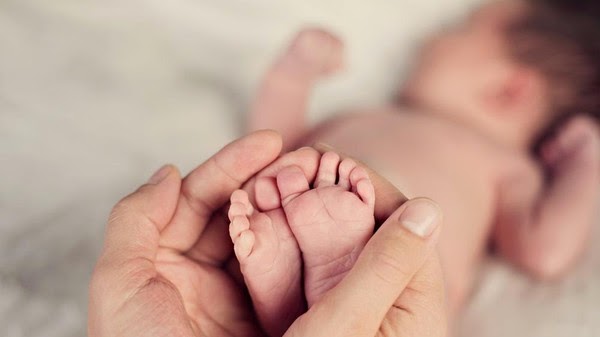
Kalzha — a meat food that is specially prepared for the mother that gave a birth to a child. "Kalzha" is brought by friends and relatives. This, on the one hand, is care about a woman, so that she quickly regains health, and on the other hand – is a sign of respect, attention.
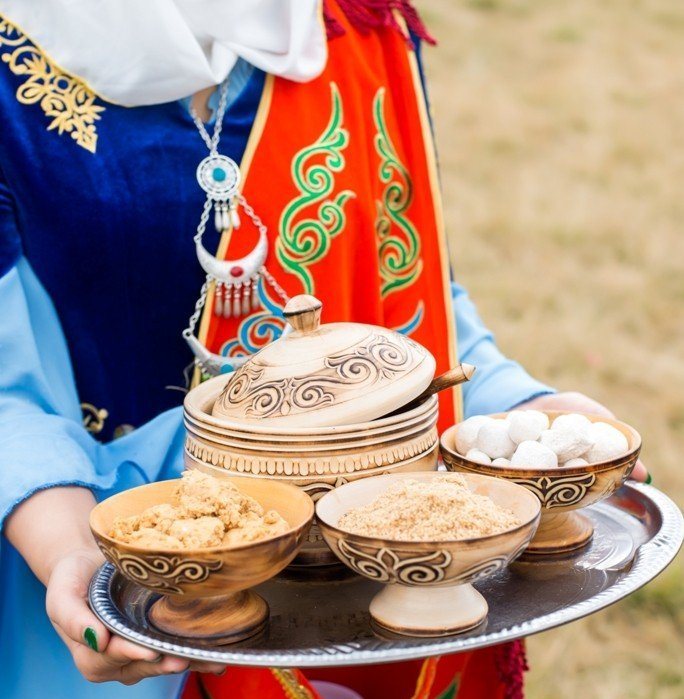
Besikke salu, besik toi — a holiday, arranged after putting the newborn into the cradle. According to custom, for the first time the child is laid to the cradle by the respected grandmother, usually the ancestor of the family. The ceremony is accompanied with the traditional song "Besik Zhyry". When the child is laid in cradle, the grandmother gets a gift — "besik salar".
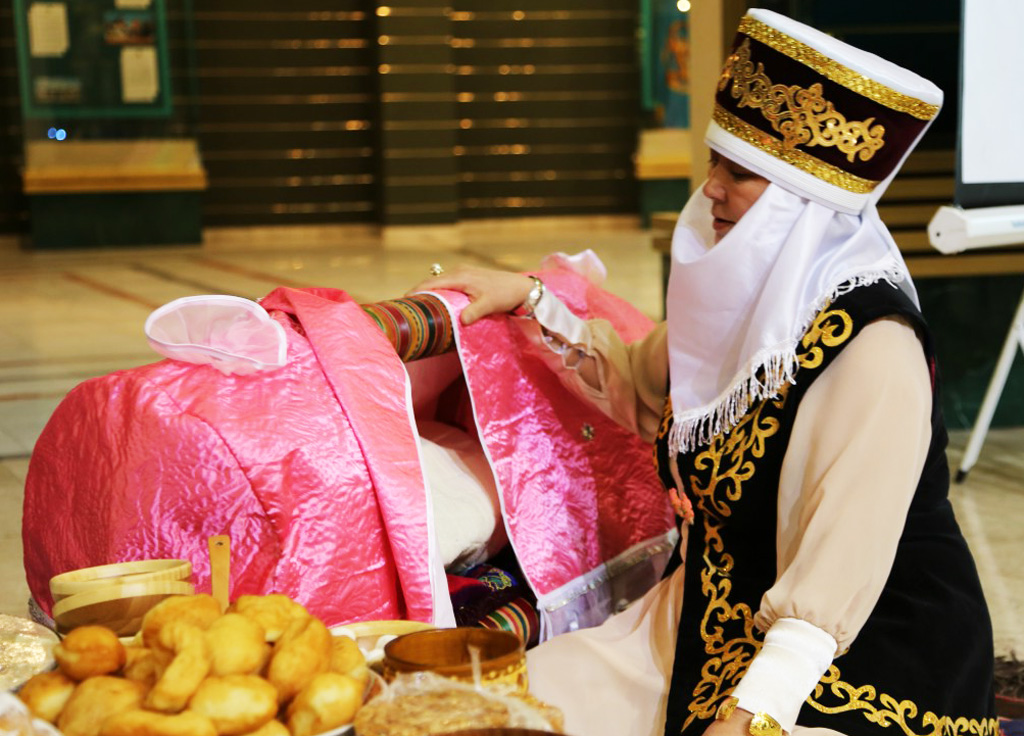
Esim koyu, at koyu — the rite of giving name to a newborn. Parents and relatives mostly choose names of famous people, so that the child will look a little like the person they admire. In this case, the rite is entrusted to respected people who bless the newborn.
Kirkynan shygaru — a ritual performed on the fortieth day after the birth of the child. Includes: bathing the baby in 40 tablespoons of water, as well as the first haircut and nails.
Tusau kesu — cutting the fetters. This ceremony is held when the baby takes the first steps. His legs are tied with a thin mottled lace, which is to be cut by an enthusiastic and honorable person. Songs and wishes accompany the ceremony, so that the child is able to go through life on his own legs. The ceremony continues with a feast. Ceremony is done so that in the future the baby could walk confidently and run fast.
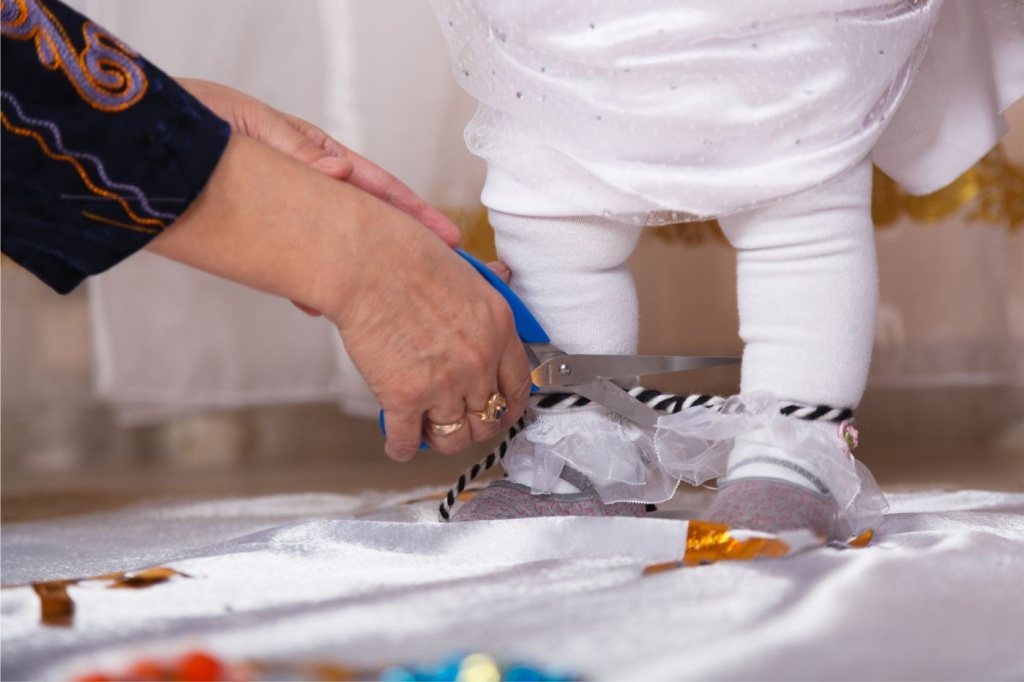
Sundet toi — a rite of circumcision. When the boy is 3, 5, 7 years old (odd years), he must go through the circumcision ceremony. The custom is considered religious, although not only Muslims follow it. Kazakh people are making feast for all the invited guests. Boy gets a horse and many other gifts.
Kindik keser — a ceremony of cutting the umbilical cord. Usually, respected woman or a wise grandmother does the entire rite. After that, the woman gets gifts —"kindik keser". The woman who cut off the umbilical cord is called "kindik sheshe" (sheshe — mother), and she is also considered as the mother of the child. Later "kindik sheshe" can come to the house where the child grows and ask for anything, and no one refuses.
Tilashar — a holiday organized in honor of the beginning of the school period in the life of the child. When the child reaches the age of 7, parents start the education in the school. During “tilashar” ceremony, the elderly bless him to study well. Kid gets presents — “baigazy”. The main purpose of the rite is to show that a child is becoming an adult, that now a new world is opening up for him.


